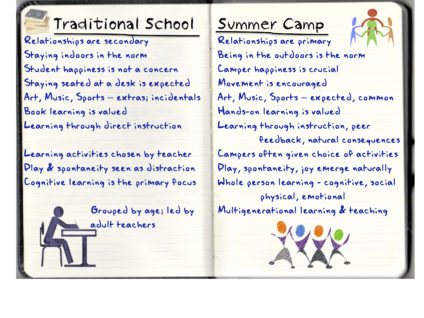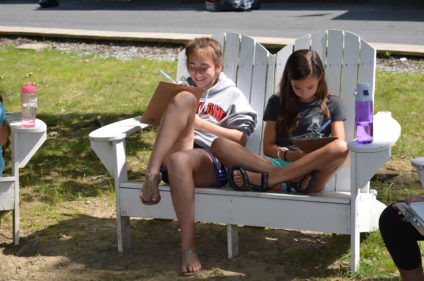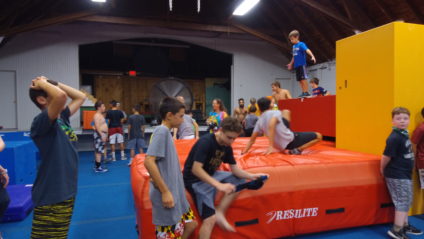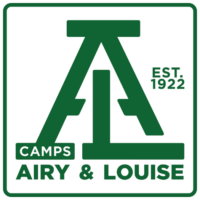What you learn at camp that you can’t learn at school
School Learning vs. Camp Learning – How do the two compare?
Every child goes to school; it’s the law of the land no matter where you live. School is where most kids go to acquire a formal education in an extremely regimented classroom atmosphere. For 10 long months each year, students sit at their desks and study history, science, math and languages. And when the school day ends, parental pressure sets in, driving boys and girls to study hard and specialize in an activity such as playing a sport or learning music during their downtime.
Camp, on the other hand, is considered a luxury – one that not everyone can afford and one that not every parent views as a priority. Yet, boys and girls who spend their summers at camp are interactively immersed in a place of active learning that occurs on many levels. In fact, children who find it difficult to learn in school settings, will often succeed in camp, improving on personal, social, emotional and physical fronts – with a strong carryover into school studies. Free from academic-year demands, summer camps allow kids to be willingly schooled in important lessons and actively participate in their own education.
Let’s examine how the two compare:
The freedom to choose
Much of a child’s life is chosen for him or her: where they live, what school they attend and how they are raised. Yet, if we want to raise children to become independent and confident adults, they have to learn to make their decisions at some point or another.
In school, a set curriculum is presented to students, which they must follow with little variation. Choice is limited to who to partner with on group projects, or whether to write about the benefits of electricity or indoor plumbing. At camp, freedom is nearly boundless, with boys and girls able to choose from a variety of activities that match their interests and skills. Here, campers can experiment with free choice, within the supportive bounds of the camp grounds, staff members and philosophy.
Practical learning
Child development experts agree that kids need to learn a variety of skills to help them grow into healthy, educated and well-rounded adolescents and adults. For children to develop these skills, their experiences must produce a sense of industry and competency, a feeling of connectedness to others and to society, a belief in their ability to make decisions and the foundation for the maturation of a stable identity. This is a key area where schools and camps differ in their methods of instruction and the results they receive.
Schools prioritize book learning. Camps prioritize interactive learning. Both equip boys and girls with valuable lessons they need to succeed in life, but while schools focus on specific areas of knowledge that will allow your child to get into a good college, camps focus on broader skill-sets, like working with your hands, engaging in social action and housekeeping that arm your child with increased independence and conscientiousness. While you don’t need to know calculus to have a great summer camp experience, the practical skills learned while at summer camp certainly benefit future school learning habits and behaviors.
Social-emotional learning
Obligations to complete curriculum and boost academic achievement often make it hard for teachers to prioritize community building, goal-setting, or problem solving in their classrooms. And yet, these skills are increasingly understood to be central to success in school, in professional life and beyond. Schools simply don’t always have the time or capacities to teach them outright. At camp, on the other hand, the combination of your child being away from home and parents, their making new friends, being part of a team, and trying new things, work in harmony develop your child’s social and emotional skills. Instead of the qualitative success measures standardized school tests seek to uncover, social-emotional learning success at camp is measured quantitatively – is your child self-aware? Can they self-manage? Do they have a sense of social awareness? How do they navigate relationships? Can they make responsible decisions? Released from the commitments of the school day, summer camps (especially residential overnight camps) can tackle social-emotional learning head-on, enabling increases in children’s self-esteem, independence, leadership, friendship skills, social comfort, values and decision-making skills by the end of a camp session, an American Camp Association study reveals.
A physical outlet
Physical activity is extremely healthy and is a great outlet for boys and girls to get rid of excess energy, enabling them to pause and re-focus on other tasks later on. What’s more, children who are involved in sports and movement-based activities develop better motor coordination and show improved overall cognitive function.

At school, play, spontaneity and physical exertion is often seen as a distraction, except for maybe during gym class. At camp, being active and engaging in creative and sports activities are the backbone of interactive learning environments. Through basketball and soccer, teamwork and sportsmanship can be modeled. Through woodworking, campers can learn to improvise and follow directions. Through tug-of-war, compromise can be learned. The physical activities boys and girls engage in at camp provide them with the skills and functions schools want them to have, but don’t have the ability to foster.
Childhood is full of learning opportunities that will shape the way boys and girls lead their lives. While everyone goes to school and learns frontally, camp learning provides unique ways and methods to acquire important life skills. At Camps Airy & Louise we have a tradition of teaching boys and girls life skills that’s nearly 100 years old. We offer our experience to families looking for the ultimate interactive learning experience for their child. Contact us at 1-410-466-9010 or via this email form and we’ll be happy to answer any questions you may have.

